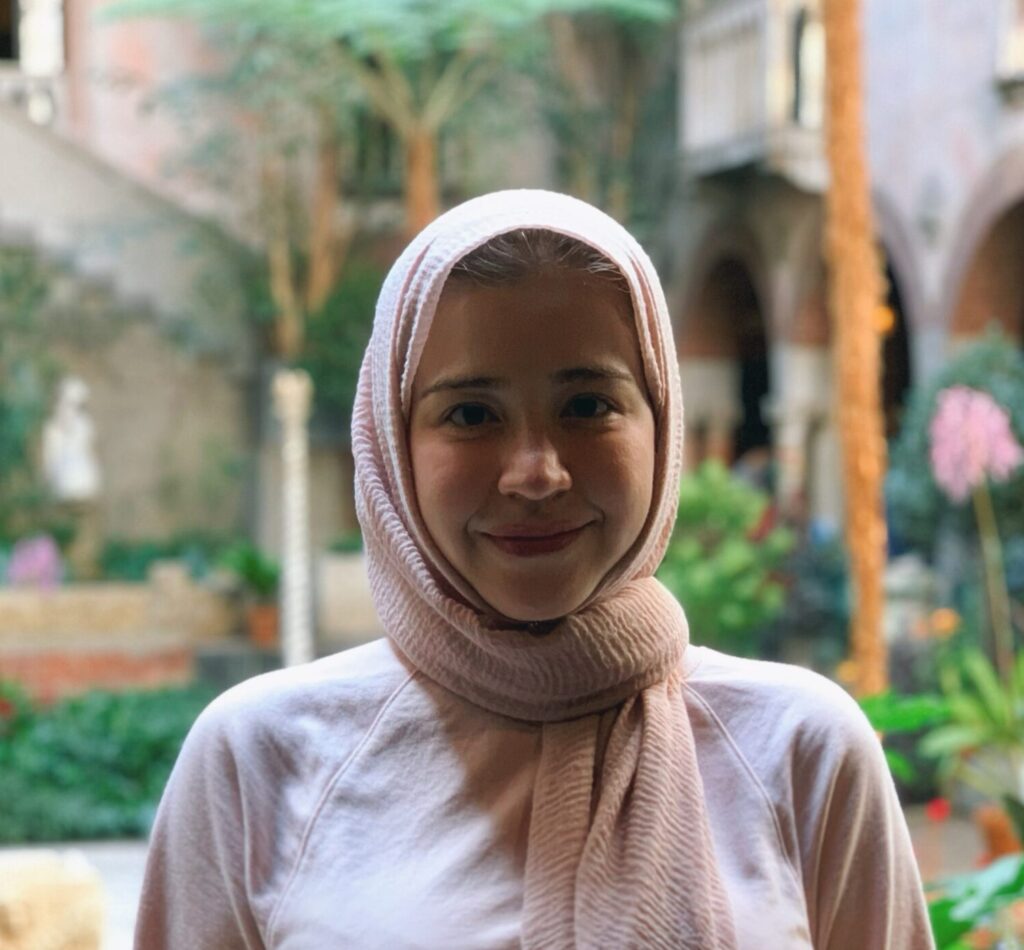Each spring, the Writing Center honors the amazing work of our instructors through our teaching excellence awards. We award one instructor an Award for Early Excellence, which is for instructors in their first two years with the center, and we award one instructor an Award for Advanced Excellence, which is for instructors who have been teaching with the center for more than two years. These awards specifically recognize our instructors’ one-to-one work with students.
Our process for selecting our award winners starts with a call for nominations. Nominees are invited to submit applications, which include a statement of writing center teaching philosophy, evidence of teaching effectiveness, and a short reflection on the evidence they provide. Our selection criteria include demonstrations of dedication to students; success in tutoring; ability to work with writers in various disciplines and at different levels; evidence of student learning; innovation in tutoring; and reflective tutoring practice.
We are proud to announce the winners of our 2022 teaching excellence awards. Ashaman Sandokji has been awarded the TA Award for Early Excellence, and Sarah Olson has been awarded the TA Award for Advanced Excellence. As a part of celebrating their excellent work with our writing center, we would like to share their statements of writing center philosophy.
Asmahan Sandokji: TA Award for Early Excellence

Asmahan Sandokji received her PhD in World Language Education from the University of Wisconsin–Madison’s Department of Curriculum and Instruction. Her research interests include inclusive education and culturally sustainable pedagogy for refugee children in U.S. schools. In her spare time, Asmahan enjoys reading about social-emotional learning, writing for healing, and taking a creative approach to language education.
Asmahan’s Writing Center Teaching Philosophy
In this essay, I discuss two of my core values as an educator: mastering the art of listening to my students and demonstrating concern for their emotional healing through writing. I view the recent two years as an enlightening period of my career that taught me how the act of writing is an isolated process that certainly requires sharing with others.
In particular, when I enter a meeting, I create an environment of care and comfort for my student writers in order to help them establish absolute belief in their writing tasks. Then, before navigating the given text, I gently ask the student to point out any parts that they are concerned about so that we can spend our time prioritizing their concerns. Furthermore, I ask the student to read aloud, and during that time, I provide a space for them to reflect on the text to help them practice criticizing their work before providing constructive feedback. This will benefit the students in the long run because it will allow them to develop the skill of evaluating their own writing in the future. I ask the students to share their plans for the work in progress near the end of the appointment, gently praise their work, and encourage them to return to the Writing Center for future writing projects. Overall, I devote the majority of my instruction time to listening to what my students have to say so that I can serve them as best I can.
I view bonding over writing projects as an essential component to help them establish a therapeutic sense during instruction time. To accomplish this with my students, I strive to find ways to spread comfort and affirmation while also communicating my personhood and experiences, particularly when confronted with familiar writing tasks. In addition, I use light humor on occasion to make the student feel more at ease and less anxious about their writing. I try to bring these qualities to emerge from my identity as a mother. I was blessed with a healthy pregnancy and a happy baby girl during the past year while working in the Writing Center remotely.
Furthermore, because I was too working on my dissertation while balancing my mental health, I channeled my motherhood through my work with my student writers. My experiences taught me to prioritize my own health as well as the health of my student writers. As a result, I valued the time, emotions, and hard work that my student writers put in to complete a variety of complex writing tasks by demonstrating care and sustaining students’ investment in their work.
Sarah Olson: TA Award for Advanced Excellence
Sarah Olson is a PhD candidate in Literary Studies, researching early modern revenge tragedy through a focus on media and disability studies. She has been working with the Writing Center since 2018.

Sarah’s Writing Center Teaching Philosophy
In my favorite moment of many Writing Center sessions, the student I’m working with will turn to me and exclaim, “It’s just so helpful to have someone to discuss my ideas with!” Statements like this are often made off-hand, at the end of an appointment, but they have such an impact because they prove that, together, this student and I have worked toward my central goal in one-to-one writing instruction: helping writers understand and pursue their investment in their own ideas. These moments tell me that rather than acting as a corrector of mistakes or a taskmaster for revision, I have served as a conversation partner, keeping the focus on students’ own valuable arguments – and in my time at the Writing Center, I’ve gained the tools I need to do this sort of work across my range of teaching responsibilities.
For instance, my efforts to build relationships with students have become more intentional, now that I have gained a language of care. If care is both an attentiveness to others’ goals and a commitment to providing the resources and assistance to achieve those goals, then the act of building relationships moves beyond establishing trust in a session and making the meeting more enjoyable; it becomes a way to balance student needs with my assessment of their writing. By easing into the session and creating ‘unpacking the backpack’ moments across in-person instruction, virtual meeting, and written feedback modalities, I am proud of the relationships I’ve developed in my one-off sessions with students. But I am also proud to have built relationships across appointments and semesters, with students who seek unofficial mentorships by returning to my shifts again and again. I have even been pleased to work with students who attend my workshops and find me on WCOnline afterwards.
These appointments—transitioning a student from a workshop setting to one-to-one instruction—are key opportunities to ensure I am addressing each student first and foremost, rather than focusing only on their draft or their writing task. High-stakes writing and writing from unfamiliar fields are often situations in which a student’s document feels intimidating and ‘set in stone,’ both to them and to me as an instructor. Acting as an enthusiastic generalist, I assess the degree to which we can move away from the particularities of the student’s draft and engage in a larger conversation about their ideas. While students may initially feel isolated by their specific expertise, I see their relief when I am able to recognize patterns in argumentation across disciplines and genres and, together, we can leverage my understanding of their larger ideas towards developing the specifics of their writing.
The most valuable resource the Writing Center has offered me, of course, is time to develop these skills and gain confidence in the effectiveness of my instructional process. In the same way, by developing students’ investment in their own ideas, I aim to show students that they are advancing my learning by talking about what they value. By turning revision into a conversation, together my students and I explore how their writing process can communicate their ideas in a way they can feel proud of.
The leadership team at the UW-Madison Writing Center is proud to honor these instructors’ excellent work in our center.



Congratulations to the awardees (from a proud parent)!
Writing is a skill that is valuable in almost every profession. Certainly ours, as we are a digital marketing agency. Good luck with the project.